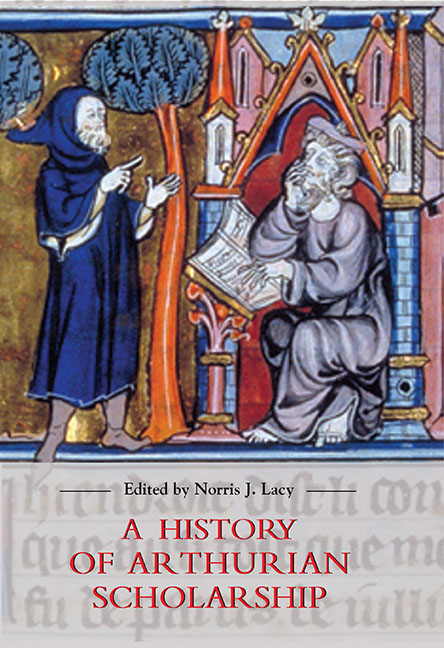French Arthurian Literature
Published online by Cambridge University Press: 18 March 2023
Summary
The privileged position of Old French Arthurian romance at the beginning of the history of the genre means that knowledge of it and the scholarship devoted to it is often a necessary preliminary to the study of, say, Middle High German or Middle English romance. Moreover, general studies of medieval Arthurian romance, its themes and characters, usually begin with consideration of French. Consequently, a number of the scholars discussed in this chapter are also important for the history of scholarship on romance in languages other than French. We are thinking here particularly of the early mythologists and folklorists, such as Jessie Weston, and the authors or editors of such summae as J.D. Bruce and R.S. Loomis. There will therefore be some unavoidable overlap with other chapters in the present volume. Our approach here is largely chronological in that certain topics and approaches tend to dominate scholarship on Old French Arthurian romance over a decade or decades. Although we have been able to discern a basic movement from editing through source study to interest in the literary qualities of the text, reception history and application of various theories, the chronology is not absolute, as there are examples of all but the most recent types of theory-driven scholarship scattered across the twentieth century as a whole. We concentrate here on two main groups of texts: firstly, the romances of Chrétien de Troyes and the verse tradition of Chrétien epigones, and secondly the great prose romances, cyclical and non-cyclical. We treat the Tristan romances to a lesser degree and have left out of consideration the Lais of Marie de France, since, with the exception of Lanval and possibly Chievrefoil, they cannot be considered Arthurian.
Since the modern study of medieval literature is mainly based on printed editions, this chapter will begin with an overview of achievements and the methods of editing Old French Arthurian romance from roughly the middle of the nineteenth century, essentially the beginning of the institutionalization of scholarship in the area. Although knowledge of these texts between the end of the Middle Ages and our chosen point of departure is a fascinating chapter in the history of medieval studies, we pass over it in silence for the large part.
- Type
- Chapter
- Information
- A History of Arthurian Scholarship , pp. 95 - 121Publisher: Boydell & BrewerPrint publication year: 2006

